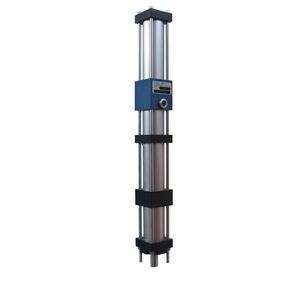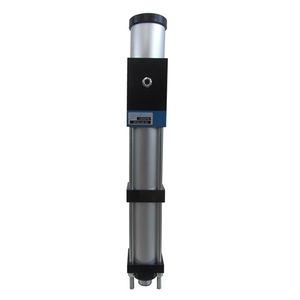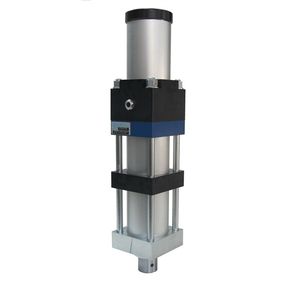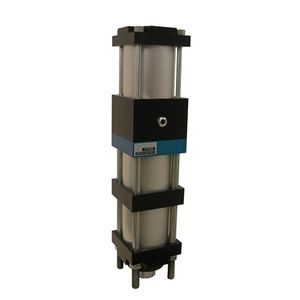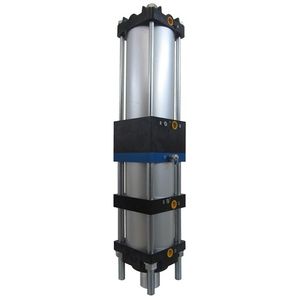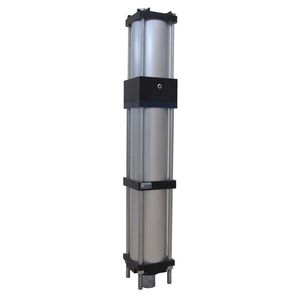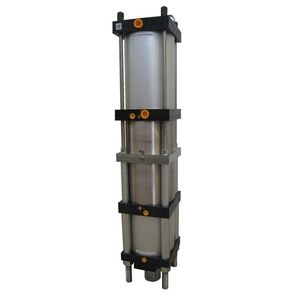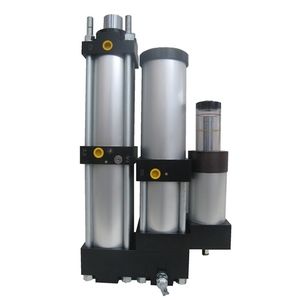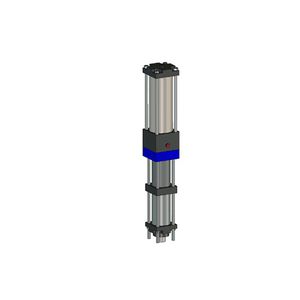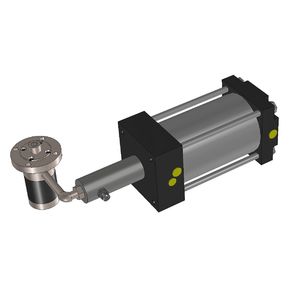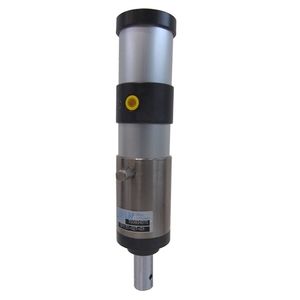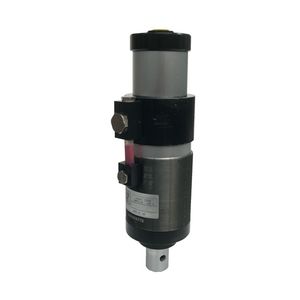
- Power Transmission - Mechanical components
- Actuator and Positioning System
- Pneumatic cylinder
- LDP Italia - Thrust Technology srl
Hydro-pneumatic cylinder EPY 37double-actingfor pressesfor process automation





Add to favorites
Compare this product
Characteristics
- Type
- hydro-pneumatic
- Configuration
- double-acting
- Applications
- for presses, for process automation
- Other characteristics
- threaded, in line
- Stroke
Max.: 165 mm
(6.496 in)Min.: 5 mm
(0.197 in)- Force
Max.: 22.5 kN
Min.: 2 kN
- Speed
Max.: 0.3 m/s
(0.98 ft/s)Min.: 0 m/s
(0 ft/s)
Description
EPY 37 Model
• Driving Force EPY 37: 22,5 kN (2.250 kg) at 6 bar
• Approach Force: 2 kN (200 kg) at 6 bar
• Rise Force: 1,85 kN (185 kg) at 6 bar
• Total standard strokes: 45 - 75 - 115 - 165 mm
• Standard working strokes: 5 - 10 - 15 mm
Press head EPY 37 Spécifications
• In line or parallel Version Working versions position: Vertical, Horizontal, Sub-vertical, Universal Parallel Threaded bolts or screws “TX” version
• Work force at 6 bar : : 22,0 kN
• Approach force at 6 bar : : 1,9 kN
• Total force at 6 bar : : 23,9 kN
• Return force at 6 bar : : 1,8 kN
• Standard total strokes : : 45-75-115-165 mm
• Standard working strokes : 5-10-15 mm
• Approaching reccommended speed : 0,3 m/sec
• - Anodized aluminium
• - Standard magnetic unit
• - Connection with high pressure chamber
• - Adjustable return stroke cushioning
• - Rod connection model “AF’ or “AS" or- “AT”
• - Possibility to manage the working cycle in an independent way from the approaching phase
• - Possibility to manage the unit with low pressure
• - Without extemal tank
• - 3D or 2D drawings on request
• - Usage instructions in pdf format
• - Incorporation statement
• - Unit testing certificate
Catalogs
No catalogs are available for this product.
See all of LDP Italia - Thrust Technology srl‘s catalogsOther LDP Italia - Thrust Technology srl products
HYDROPNEUMATIC UNITS
*Prices are pre-tax. They exclude delivery charges and customs duties and do not include additional charges for installation or activation options. Prices are indicative only and may vary by country, with changes to the cost of raw materials and exchange rates.


